Senior Management schedules extra hearing for students in wake of protests
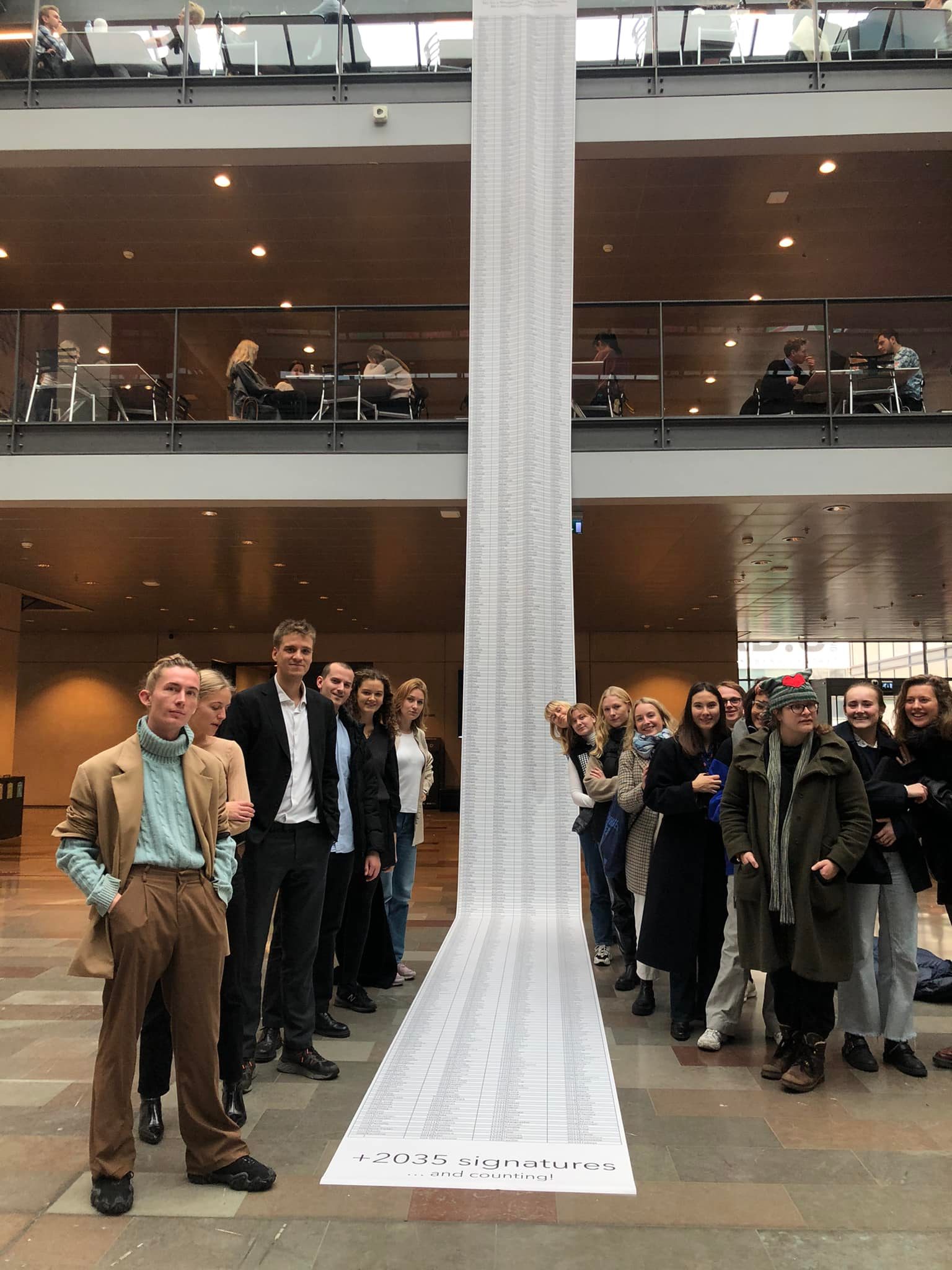
Over the course of a few days, students gathered more than 2,000 signatures on an open letter against the closure of CBS programs. (Photo: Morten Levinsen)
“We use the hearings to see whether input from the organization can give grounds for adjusting the plan,” says Inger Askehave, the Acting President of CBS. She and the Dean of Education, Gregor Halff, also answer questions regarding whether CBS can live up to its strategy and how they will avoid layoffs.
Just as the interview with the Acting President of CBS Inger Askehave and the Dean of Education Gregor Halff is taking off, students have again gathered to demonstrate against the proposed closure of six programs. This time in front of the library at Solbjerg Plads on the afternoon of Friday November 19.
“I think it’s great that they are showing engagement, and it’s great to hear that they care about the programs they are studying. It’s also important to emphasize that current students will not be affected by the reductions. But I can imagine the loss that the students feel concerning the programs in the danger zone. It is their life blood and engagement. So, I can definitely imagine what is going on in the organization right now,” says Inger Askehave on the question of whether the students’ protests and the criticism and worries expressed by staff and students in general are making an impression.

As a consequence of the students’ protests, an extra hearing for the students has been scheduled for Tuesday November 23, as CBS Students and students from the affected programs have expressed that they do not feel properly represented in the hearing process, according to Inger Askehave.
“We have decided to expand the hearing process to include an additional hearing for CBS Students and students who want to comment on the proposal for study place reductions. In that sense, we have expanded the hearing to not only include the internal bodies where students are already represented,” she says.
This week, the Senior Management has been conducting hearings with, for example, the General Consultation Committee and the Academic Council in order to obtain input from the organization on the proposed plan. On December 2, the CBS Board of Directors will be approving the final plan to be sent to the Ministry of Higher Education and Science before the New Year.
But could the hearings result in an entirely new plan?
“We use the hearings to see whether there are nuances, aspects and arguments we have overlooked that could give grounds for adjustments. But we also use the hearings to pressure test the proposal. So, if we have overlooked anything and if there’s another and better proposal or argument, then we can adjust the plan,” says Inger Askehave.
“It’s a common procedure”
Already before the proposed plan for study place reduction was published, both students and the Academic Council expressed concerns over the process. In particular, they were worried that the CBS Board of Directors, who were first to be presented with the plan, would give it their preliminary approval before hearings were held involving CBS’ internal bodies.
Inger Askehave explains that the reason the plan was first presented to the CBS Board of Directors is that the Senior Management wanted to pressure test the plan and stresses that the presentation was more of a briefing.
“It’s common procedure to proceed like this. We, in Senior Management, cannot present a plan to the organization that in no way reflects what the CBS Board wants and expects. So that’s perfectly natural, but as we described at the board meeting, our set purpose was to brief the Board about the plan to ensure it was within the appropriate scope,” she says.
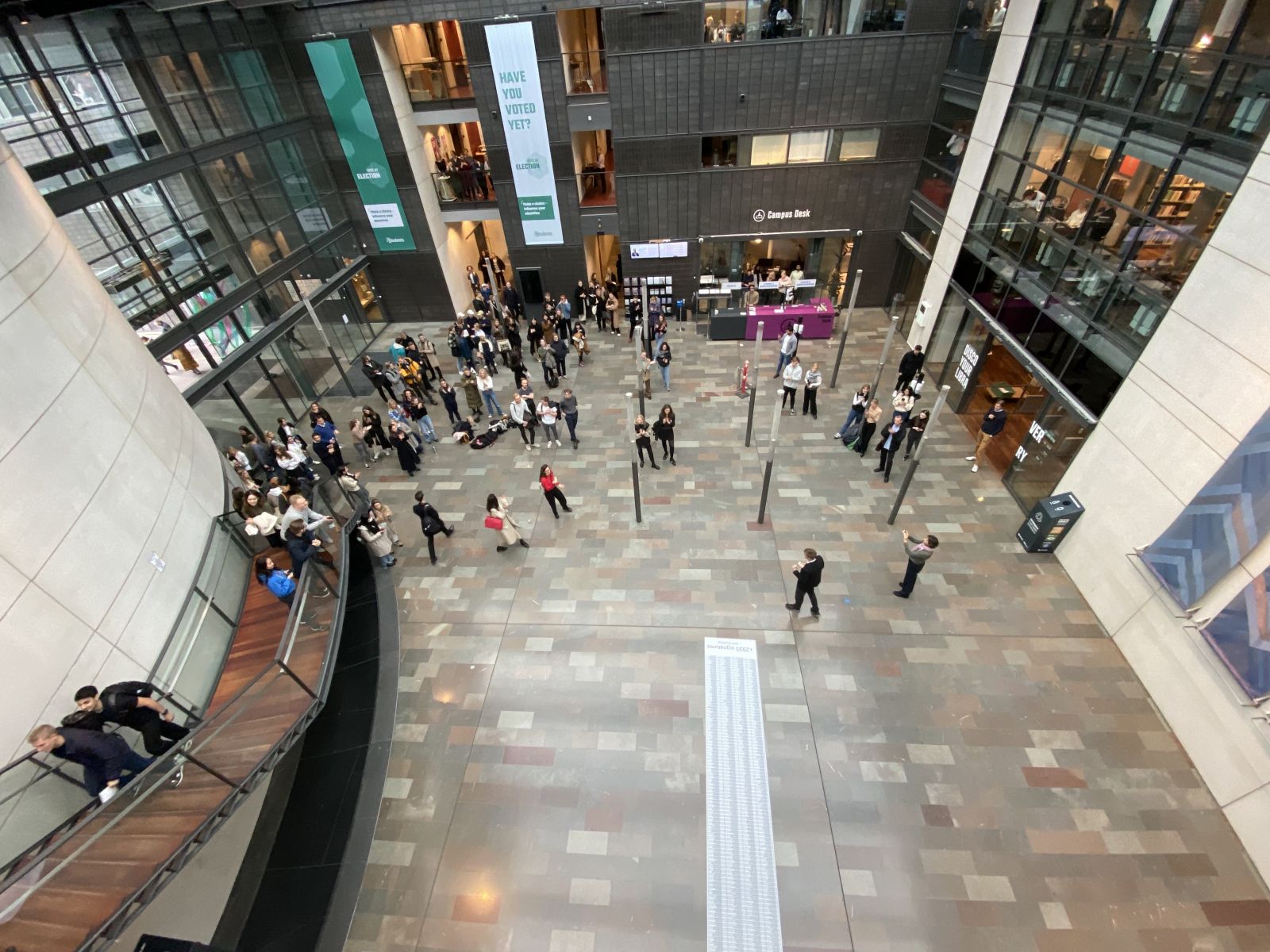
CBS’ students and faculty have two and a half weeks to provide their input on the plan before it goes into the final hearing at the CBS Board meeting on December 2, when it will be approved before it is sent to the ministry.
Employees and students have expressed to CBS WIRE that the process seems too hasty and that there is not enough time to draw up a plan that may result in “irreversible” consequences.
Has CBS been given too little time from the government to complete this process?
“No. It will always be difficult, and it will always be a process that generates a lot of discussion. And we are trying to make a plan that allows some decisions to be postponed. We are reporting on half of the reductions we have to make and will report on the rest in 2025. That’s our way of taking into account that this is a long-term perspective. We are committing ourselves to finding the 10% reduction, but not in one go,” says Inger Askehave.
The plan that the Ministry of Higher Education and Science receives before New Year is to be collected with the other Danish universities’ plans for study place reductions towards 2030. Then, in the spring, the Ministry will present a national sector plan that will include the final implementation outlines of the regionalization plan in accordance with the political agreement made in the spring of 2021.
Is CBS reverting to business as usual?
The epitome of CBS’ new strategy is ‘transformation’. CBS aspires to be a transformative university from where transformative students graduate and researchers conduct research with the potential to transform society.
But after the proposed closure of programs such as the MSc in Organization, Innovation and Entrepreneurship, the BSc and MSc in Business Administration and Philosophy, and the MSc in Political Communication and Management was presented, students and employees are asking themselves whether CBS can live up to its own strategy.
Employees and students are arguing to CBS WIRE that the transformational and cross-disciplinary capabilities that are much needed in society, now and in future, are the core of what is being taught on these programs. And by closing them, CBS would return to being a ‘Købmandsskolen’ (school for merchants), as it was once called.
“We have to be fair to all the programs. There are no such things as ‘real’ CBS programs and not so ‘real’ CBS programs. I think the spirit of having a broad perspective is part of all the programs. We have decided, with approval from the CBS Board, that we want to take this one step further and have a transformative ambition, and that can only be achieved by the programs together,” says Gregor Halff.
Surely, the way of contributing to gender equality cannot be to have programs for women and programs for men
Gregor Halff
He highlights that – no matter the outcome – CBS will need to practice more of what he calls “integrated responsibility”.
According to Gregor Halff, this implies that the intellectual environments connected to the study programs can contribute to other environments – even after a program closes.
“With this proposal, we are not saying that the intellectual environments affected are less worthy, we are just saying that we are forced to cut study places, which means that we have an even larger task ahead of us in making sure that the intellectual environments then contribute to other environments and to the crafting of the capabilities we want to give our students. And this is something we need to do across all of CBS,” he says.
On the specific criticism that CBS is cutting out programs that attract a lot of women and thereby ensuring a balanced intake of men and women, Gregor Halff says:
“Surely, the way of contributing to gender equality cannot be to have programs for women and programs for men. Our current situation points to the real challenge we have now, which is to make sure that all our programs include different genders, and that we don’t have a lack of female financial advisors and a lack of male psychologists.”
Concerning layoffs
The six programs proposed for closure are all deeply rooted in the Department of Management, Politics and Philosophy. In the material published along with the proposed plan, Senior Management writes that it cannot rule out layoffs. But what can be done to avoid them?
“In the process of increasing the integration between environments, it’s obvious that we must consider where the affected intellectual environments, which are still very important for CBS, can fit in. But at this time, we cannot promise there will be a complete fit, and there might be challenges related to creating good matches,” says Inger Askehave.
In particular, junior faculty have expressed concerns regarding their future job opportunities at the MPP department – because if the proposed plan is carried out, will that lead to hiring freezes and fewer new positions to apply for?
“We must remember that there is a long phase-in period. This journey will not end until 2030, and that gives us time to think and look into what initiatives we can carry out to get these competences into play elsewhere in the organization,” says Inger Askehave and continues:
“As part of this process, we have also analyzed what types of teaching are being carried out where and by whom. And it’s evident that some teaching is carried out by certain people whereas it, in fact, could equally well be carried out by others – for example faculty at the MPP. And this is something we will look into.”
The dream scenario…
Week 47 and the beginning of week 48 will be the final weeks for hearings. Do Inger Askehave and Gregor Halff have a dream scenario for the further process and plan?
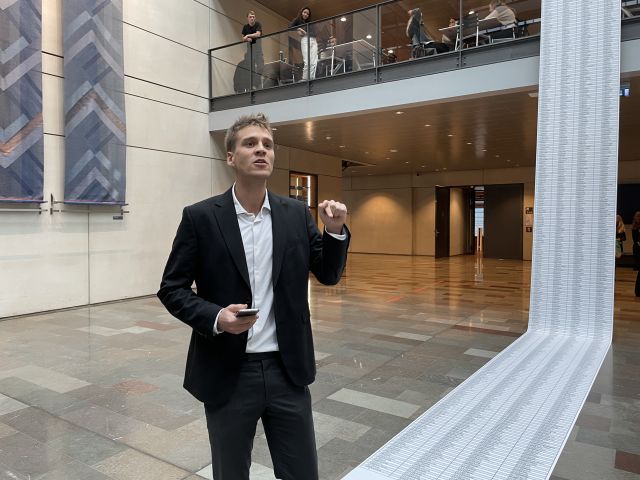
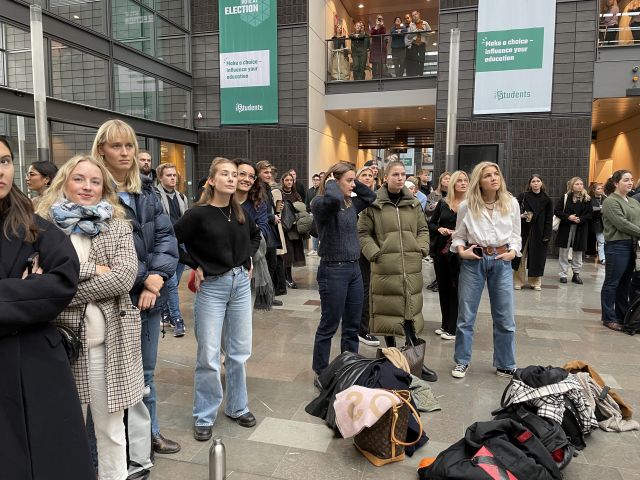
“A good plan will deliver high specificity for the things we can do in the short term, as well as reducing ambiguity for the people involved. At the same time, it should give space to respond to developments in coming years, so we are not forced to make decisions concerning the next decade right at the beginning of the decade. That will leave some open windows for us to work with,” says Gregor Halff.
Inger Askehave sees the current and future process in this way:
“I hope we will get input from the organization that will enable us to propose a plan that is reasonable in relation to the challenge we are facing. And that we obtain input that gives occasion to discuss the direction in which we are heading, and whether we need to make adjustments. And although there are many uncertainties, which makes this plan difficult to work with, I expect that we will come up with a solid plan,” she says.



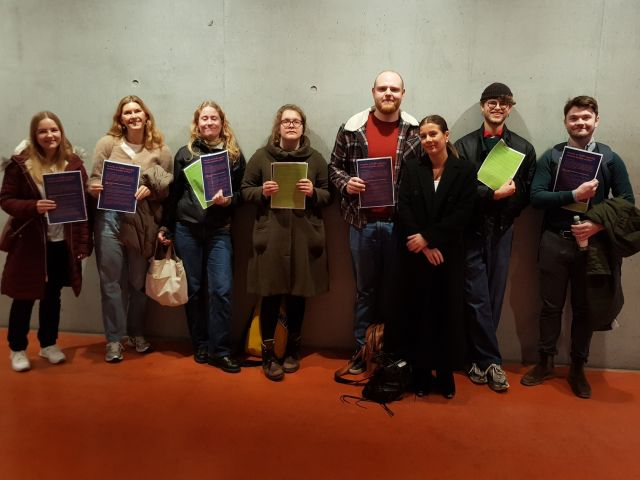
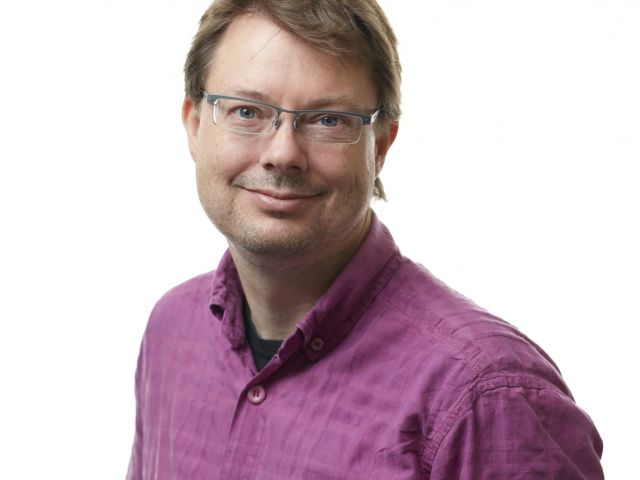

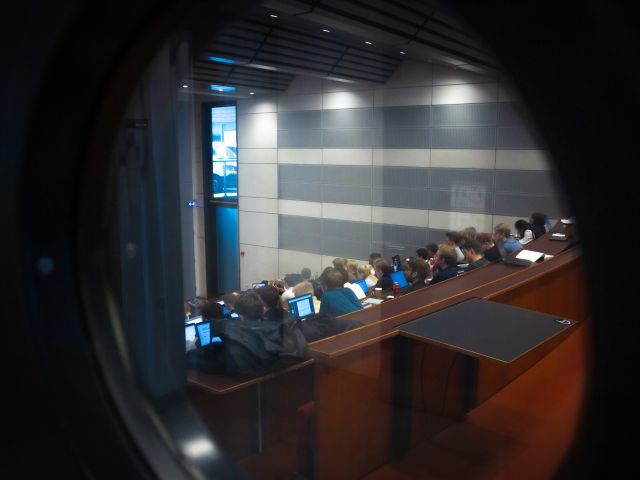
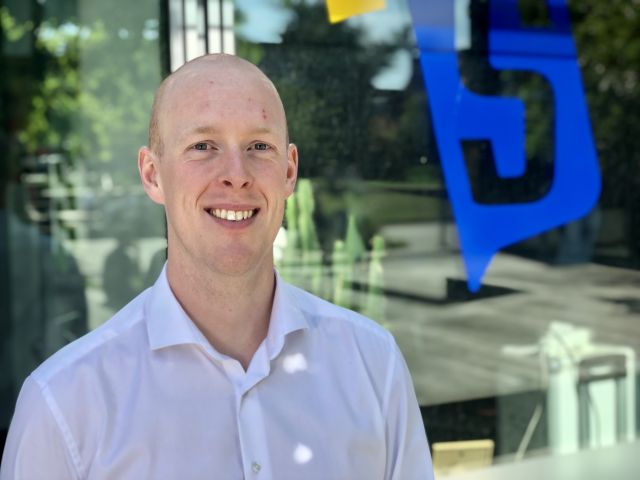
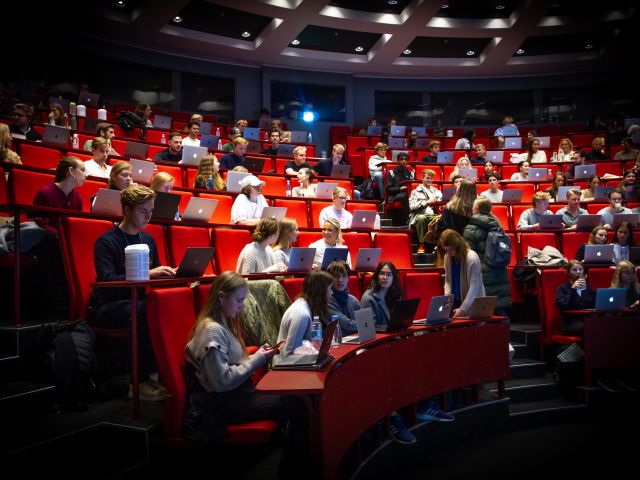
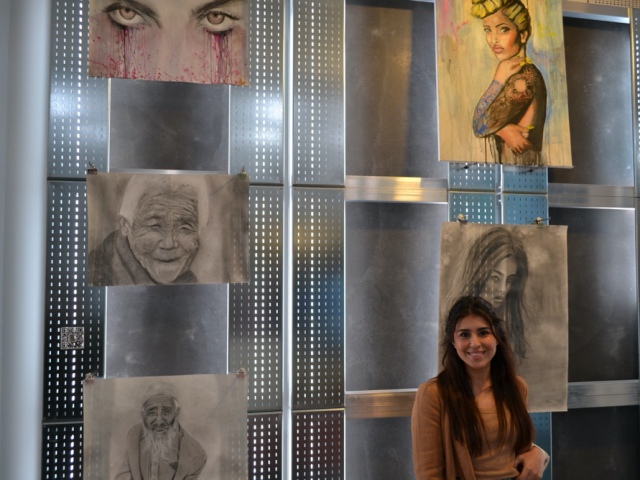





























































































































Comments